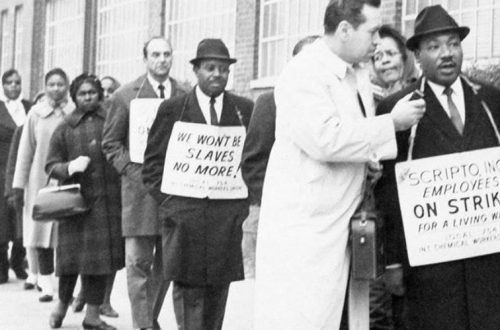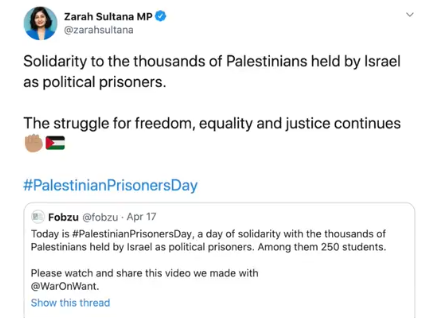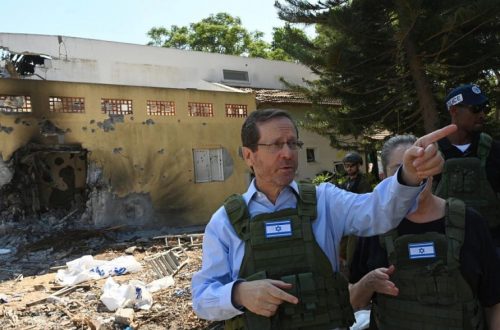By Paul M
There is a well-known poem of Yehuda Amichai’s called The Diameter of the Bomb. It feels strange to call it my favorite, though it is, because it’s not a happy poem, or peaceful or inspiring. Published in 1978, the numbers four dead and eleven wounded sound a bit quaint by modern standards but it still has all its original force. The first three lines are a dry report that could have come from a policeman’s notebook; the remaining 13 speed outward like the shockwave of the bomb itself until it becomes a cry that encompasses the whole world and manages to both include and exclude God. It’s a masterclass in how to use words with power and economy.
Amichai’s poem, with its ever-expanding frontier of suffering, keeps coming back to me as we try to deal with the reality of the 101 remaining hostages, both dead and alive. The hostages themselves, of course, are at the very center. For over 11 months they have suffered unimaginable physical and psychological trauma, isolated, perhaps buried underground and stripped of any capacity to control their lives, let alone protect themselves.
Around them is another circle: Their families are also deprived of freedom. Their lives are constricted to whatever might bring home their living or dead bodies. They too are the captives and tools of Hamas and their only option is to be hell-bent on their single mission. Is it good or bad for the interests of all Israelis? Of Hamas? Are they unifying people more than they are dividing them? What price actually would be too high? They can’t think about those things.
Extending from and surrounding the families is a third circle, of people who simply care more about individual lives than anything else. They may have no direct connection themselves, though in a country as small and close-knit as Israel many are no more than a few degrees of separation from the victims. They too are driven by an unending preoccupation with the hostages. Beyond them, the circle widens to include the rest of Israeli society and from there out into the Jewish diaspora and its friends. Even people who feel a different priority, to defeat Hamas even at the risk of the captives’ lives, aren’t indifferent. There is no one who doesn’t hate having to make the choice. All of us, to some degree, are Hamas’s hostages.
I’m tentative in expressing my own opinion: Hamas’s leash is on me too. I’m not Israeli and I’m not connected to any particular victim. I keep that in mind as I hope that Israel doesn’t give up too much to free them. I’m aware that the sacrifices I’d advocate are not my own, but I can’t see how the country can keep on endlessly ransoming captives at a price that immediately sets up another round. In 2011 Israel bought back Gilad Shalit for over 1,000 Palestinian prisoners, smothering its qualms with its pride in how much it values each Israeli. One of the thousand-plus was Yahya Sinwar, the king of the butchers who ordered up October 7th.
I don’t blame the families at all. I assume that if it were my child, wife or parent I would do what they’re doing. But the rest of us have at least got the emphasis wrong, and that includes all the governments that are to whatever extent on Israel’s side. Each hostage is a separate war crime and part of the original sin of this war. Let the negotiators bargain behind closed doors but in public, instead of pleading with Netanyahu: Agree to a ceasefire so that the hostages can be freed, we should be demanding of Sinwar Free the hostages so that you can have a ceasefire. As for Netanyahu and his cabinet, I expect them or any other Israeli government to have the whole country and not only the hostages as their concern, even if the choices are politically difficult and personally wrenching. I don’t envy them a bit, but that’s what leaders are for. Unfortunately, thanks in no small part to this government, the country is so deeply divided that it’s almost impossible to lead in any direction. For the rest of us, whichever way we lean, I want us to mix a little strategic thinking in with our emotion, to stop and ask before every action and word: Will this increase the pressure on Hamas or lessen it? Will it make them more likely or less to free every last child, soldier, grandmother and corpse? Otherwise, the diameter of the bombs will continue to grow.
The diameter of the bomb was thirty centimeters
and the diameter of its effective range about seven meters,
with four dead and eleven wounded.
And around these, in a larger circle
of pain and time, two hospitals are scattered
and one graveyard. But the young woman
who was buried in the city she came from,
at a distance of more than a hundred kilometers,
enlarges the circle considerably,
and the solitary man mourning her death
at the distant shores of a country far across the sea
includes the entire world in the circle.
And I won’t even mention the crying of orphans
that reaches up to the throne of God and
beyond, making a circle with no end and no God.





